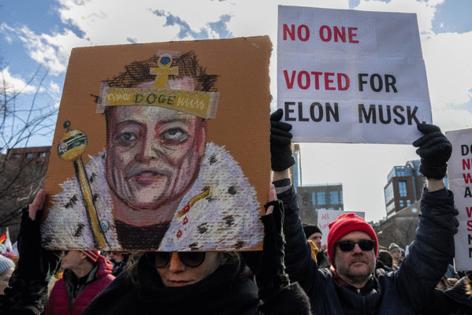Commentary: Rule of Law: Why it matters
Published in Op Eds
“Rule of Law.” I remember my first in-depth conversation about the phrase while working in Latin America—which says a lot since I took that job immediately AFTER law school.
The concept is, of course, integral to the U.S. Constitution, our founding documents, and our ideals—but I’d simply not heard the phrase, “rule of law”, used so often. Instead, we'd focused on branches of government, separation of powers, and checks and balances.
In other words, we talked about the form and structure of implementation, not the broader concept. The broader concept of no individual being above the law, regardless of level of office or level of wealth, was in the air we breathed—we deeply took the concept for granted, so much that we didn’t even name it.
Then, outside of my own country, I began to see what had once been invisible. Once I saw it, I began to wonder: “Where does one even begin to implement respect for the rule of law if widespread respect doesn’t already exist?”
We take for granted that we stop at traffic lights because order means safety; our trip may be slower, but our odds of arriving alive are greater—and that’s good for you, me, and everyone else. We take for granted that we pay our taxes because they fund the sidewalks we walk on and the bridges we drive over. Those taxes mean our savings are smaller but also that the support we may need someday will be there—and that’s good for you, me, and everyone else.
We sign leases and contracts because we trust the other party will uphold their end of the bargain—and we’ll have recourse if they don’t. Yes, we’ve reached a point where most people agree to terms on their phones without reading a word but, generally, we want to be able to trust agreements will be upheld and enforced—and that’s good for you, me, and everyone else.
We respect other people's property, to borrow a phrase from Naughty By Nature. The respect for property—physical and financial—allows us a sense of security, a foundational element in Maslow’s hierarchy of needs. When we feel secure in our property, we can focus our attention, creativity, and finances on bigger matters—and that’s good for you, me, and everyone else.
When a crime is committed, we want to have a place to turn to report that and know that our bodies and our property will be defended. If we are accused of a crime, we want to know that our bodies and our property will be defended throughout the process of determining whether or not we’re guilty—and that’s good for you, me, and everyone else.
When we buy food, we want to be pretty darn sure that food won’t sicken or kill us. Sure, we could grow everything ourselves but the vast majority of us rely on the current supply chains and, particularly during and after the pandemic, the convenience of restaurant delivery. Upholding food safety standards promotes public health—and that’s good for you, me, and everyone else.
We respect public spaces—not smoking on planes or in hospitals anymore, not defecating on a sidewalk or office hallway, not exposing ourselves on public transportation. One could try to argue those rules are inconvenient but they promote public health and safety—and that’s good for you, me, and everyone else.
Many years after my time in Costa Rica, I worked in Liberia and saw messages on faded posters encouraging people to pay their taxes. From an outsider’s perspective, the contrast between those printed pleas and the widespread agreement (and yes, dread) of April 15 felt stark. While tax compliance rates in Liberia have inched up slightly over decades of effort, they remain low, compared to global standards. I share this, not to pick on the Land of Liberty, but simply because it’s one of MANY examples of how hard it is to build a system and nationwide mindset that aren’t already in place.
Rule. Of. Law. The term is ancient, as is the desire to have systems that are transparent, fair, and accessible. Usage of the term grew, following World War II, as the world debated governance structures, particularly in efforts to fight corruption, ensure accountability, and build spaces that are good for you, me, and everyone else. We don’t have physical enforcement for civil court decisions because we have the rule of law. We don't allow a single ruler to enact or change laws because we have the rule of law.
Losing the rule of law would be like losing the air we breathe and that would be bad for you, me, and everyone else.
____
Piper Hendricks is the founder and CEO of Stories Change Power. Piper supports hearts and minds that need to reach hearts and minds. Through Stories Change Power, she equips people who want to make a difference in their neighborhoods, communities, and country. Stories Change Power provides the tools, strategy, and network to be an effective, empathetic, and trusted advocate for a just and peaceful world for everyone - no exceptions.
©2025 The Fulcrum. Visit at thefulcrum.us. Distributed by Tribune Content Agency, LLC.




























































Comments